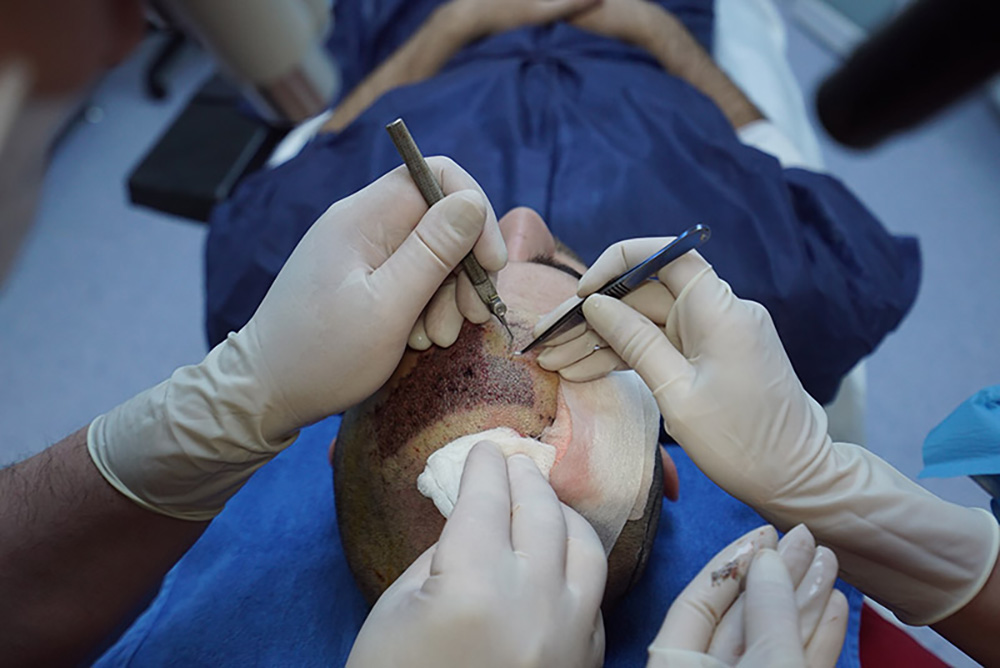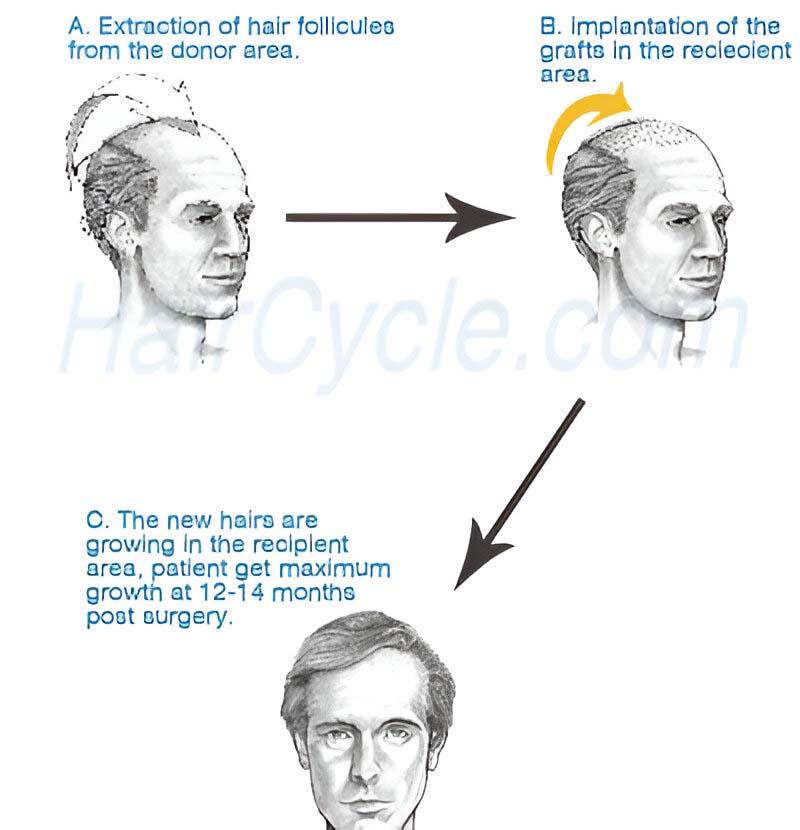Hair Transplant Surgery: How Does It Work?
Hair transplantation (HT) surgery is performed to replace hair that has been lost in the “vulnerable” areas on the top and front of the head. This hair is taken from the donor area, which is in the so-called “permanent” area in the back and sides of the head, where the follicles are minimally affected by androgenetic alopecia (pattern baldness). The dynamic of HT surgery is very simply one of supply and demand. The demand arises in the balding or thinning areas, and the supply is hopefully adequate in the donor area.

Hair transplantation is a surgical technique in which a physician redistributes hairs from an area of thick growth to bald areas.
The combination of hair restoration in the hands of a qualified physician and the hairלֹycle post-surgical treatment is the best hair loss solution for hair loss.
For more information check here: https://www.forhair.com/hair-transplant-surgery/cit-cole-fue-hair-transplant/
Hair Transplantation and the Effect of the Hair Cycle Products
Many aspects of hair transplant surgery may be discussed. The proper angles, positioning, density, graft size, and many other factors enter into determining whether a transplant is mediocre or superlative. Then, the method of graft harvesting is another issue. The debate continues to rage over the emergence of CIT – FUE Hair Transplantation as a superior extraction method over standard strip harvesting with linear scarring as a result. Then we must consider the ethics of transplanting younger men, who are often desperate, but whose best interests may be served by postponing surgical intervention. For this discussion, however, let us consider the processes of healing and growth. Grafts taken from the donor area and placed into the recipient zone (front, top, and/or crown) behave just like any transplanted tissue; that is, the healing process is the same as any wound healing, and the nutritional requirements are identical. However, we are not concerned only with the wound-healing aspects of the procedure. The transplant is only as successful as the rate of growth and the yield (the percentage of grafts that grow). We must do whatever is possible to maximize the growth of these precious follicular unit grafts; the donor resources of the balding person are not infinite.

Normally, if the HT is properly done by using the best hair transplantation tools, most of the hair shafts will shed at about 2 or 3 weeks postoperative. Then, after about 3 months, the first of the “new” hairs will begin to emerge from below the surface of the skin. Then, over the next 8 or 9 months, the remainder of the grafts will grow in (much to the delight of the eager patient!). This is not as simple as it seems. The grafts must be handled with great care during the procedure to avoid trauma and drying, which can cause the death of follicular tissue. Once placed, nature takes over and there is a reestablishment of the graft’s blood supply. Then, the process we know as healing takes place. This process is often taken for granted, but it is a complicated and miraculous one that may easily be disrupted; however, with proper care, the healing process may be assisted by the proper use of supplementary nutrients and a variety of other agents applied to the area.
Let’s talk for a moment about healing. As alien as this may sound, healing requires inflammation. Inflammation gets a “bad rap” in the popular press, but healing is characterized by this process, which is associated with redness, swelling, pain, and heat. Myriad inflammatory mediators are released immediately and also in a delayed fashion whenever there is tissue injury. One of the first things that begins to occur is an increase in blood flow to the area of injury (and remember, injury is the same whether accidental or surgical). This increased blood flow is in part responsible for the warmth, redness, and swelling we see with healing/inflammation. So, in this context, a little inflammation is a good thing. However, out-of-control inflammation can lead to problems, such as excessive scarring, pain, and tissue damage. Also, there can be excessive formation of free radicals, which are highly charged oxygen species that can damage cell membranes and even DNA. So it’s a question of balance. Another factor is the potential for infection. Whenever the normal protective barrier of the skin is violated, for instance, by cutting the skin and deeper tissues, micro-organisms may find their way in and begin to proliferate. This can lead to a local infection, which also can promote too much inflammation, scarring, and tissue damage. The bloodstream carries the important infection fighters of the immune system, so good blood flow is vital to preventing or fighting infection. As the healing process continues, things begin to change. The inflammation diminishes, and the body begins to form new blood vessels in the area. Specialized cells known as fibroblasts begin to produce collagen, a protein that is part of our connective tissue. Several chemical mediators are at play at this point; one of the most intriguing is nitric oxide (NO), not to be confused with nitrous oxide or laughing gas! Nitric oxide is involved in a huge number of metabolic processes in the body, including immune system function, healing, and hair growth.
Conclusion
Some of the ways we have tried to assist the body in its healing capacity is through our formulation of the Hair Cycle products. They contain several ingredients designed to prevent infection, modify inflammation, diminish the damage caused by free radicals, and increase levels of nitric oxide. In this way, we are maximizing the ability of the body to promptly heal surgical wounds, improve local blood flow, and allow the tissues to expend their energies nourishing the delicate grafts that are just beginning to grow. This will ensure the maximum yield and the best possible cosmetic and aesthetic outcome after the procedure.

